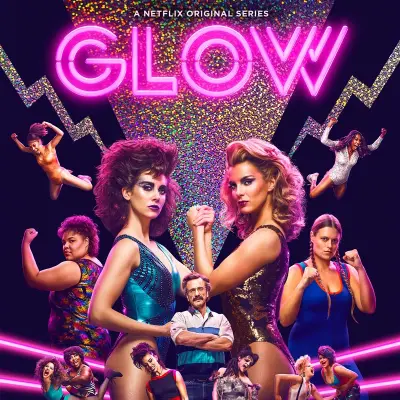GLOW proves that streaming shows don't have to structure their seasons like a very long movie
-

"The truism about writing a season of a streaming TV show — that it isn’t really TV, it’s a very long movie — is one of the more tiresome, unnecessary clichés currently in vogue," says Kathryn VanArendonk. Even showrunners of non-streaming shows -- from Mr. Robot to Game of Thrones to Twin Peaks and Westworld -- like to describe their seasons as like a "10-hour movie." But as VanArendonk points out, "the problem is that too many shows built for the long haul are boring. They’re full of baggy, meandering stories that equate episodic stories with frivolity and season-length ones with quality. Even more frustrating, the ten-hour-movie phenomenon ignores the potential for an episode to be something other than a plot bucket. The implication is that a show with an episodic framework is something lesser than, weaker, or simpler. GLOW season two is a great reminder that using an episode as an individual unit rather than one act in a film — or a book chapter, or some otherwise meaningless divider — makes the whole season stronger." She adds: "It’s so encouraging to see a show like GLOW approach the streaming form in a way that doesn’t turn the whole season into structureless pulp. The strength of separate units, stories with their own power and weight, doesn’t have to get discarded just because the episodes don’t come out one at a time."
ALSO:
TOPICS: GLOW, Hulu, Netflix, Prime Video, Binge Watching, Peak TV
More GLOW on Primetimer:
